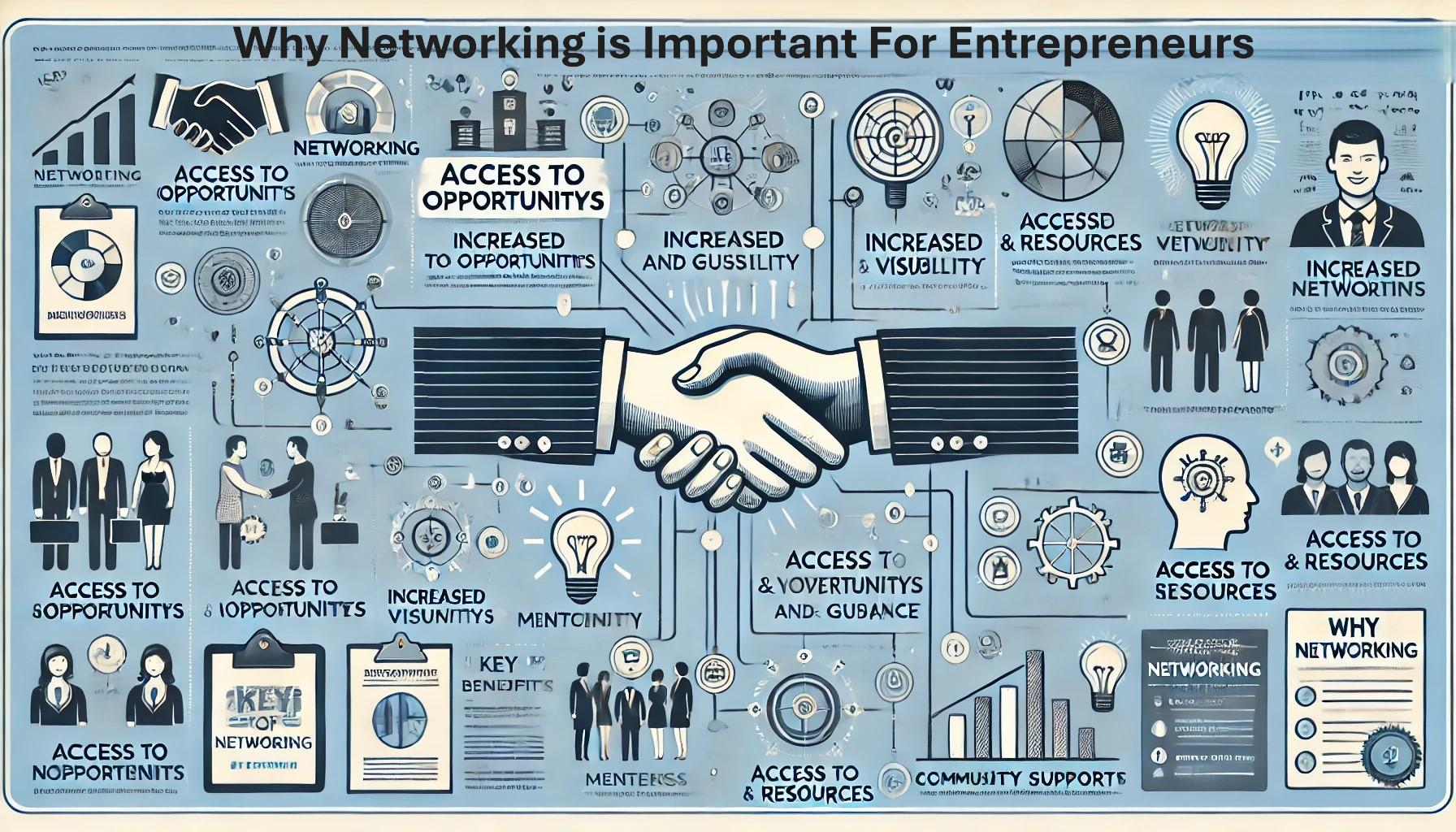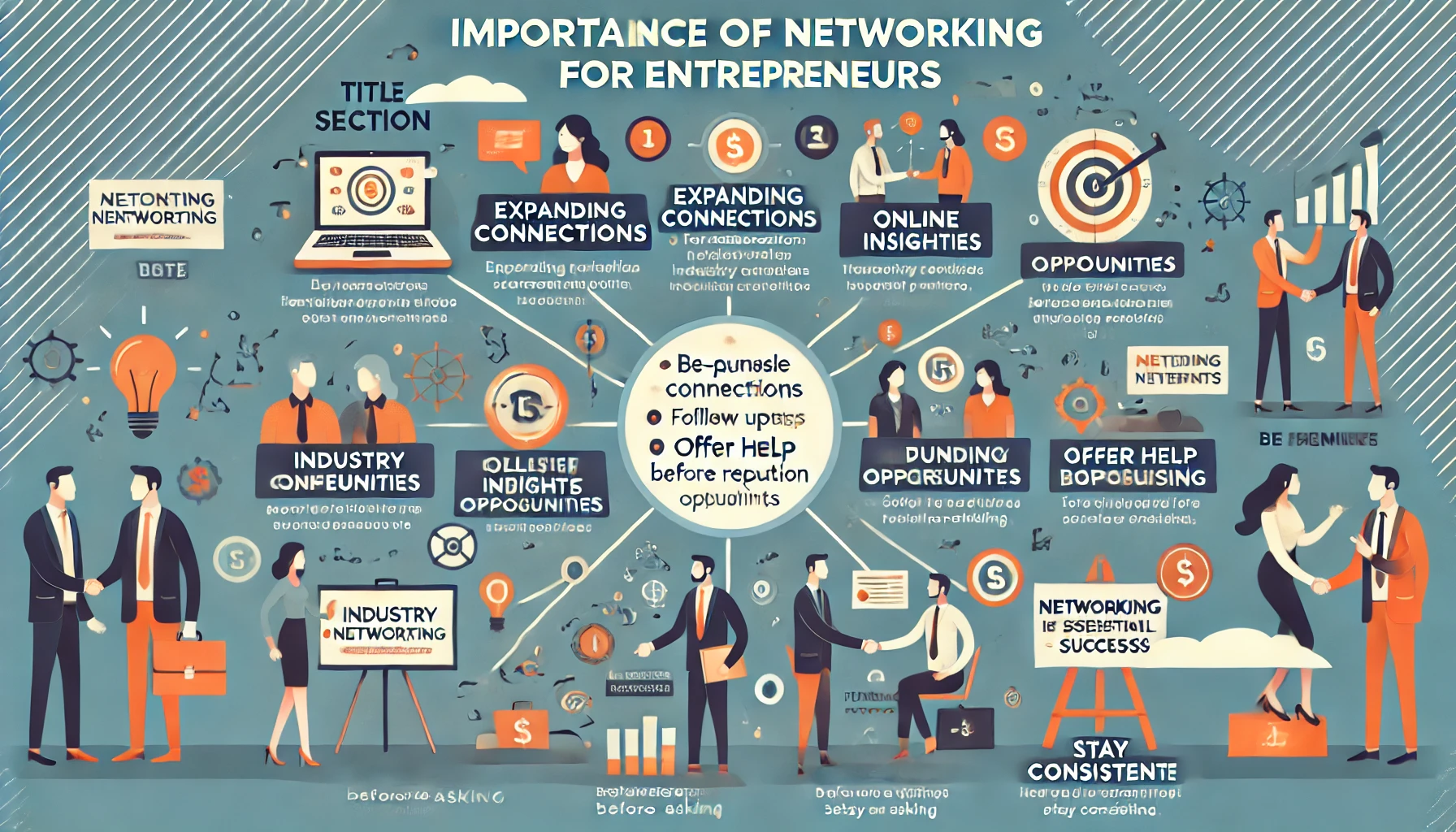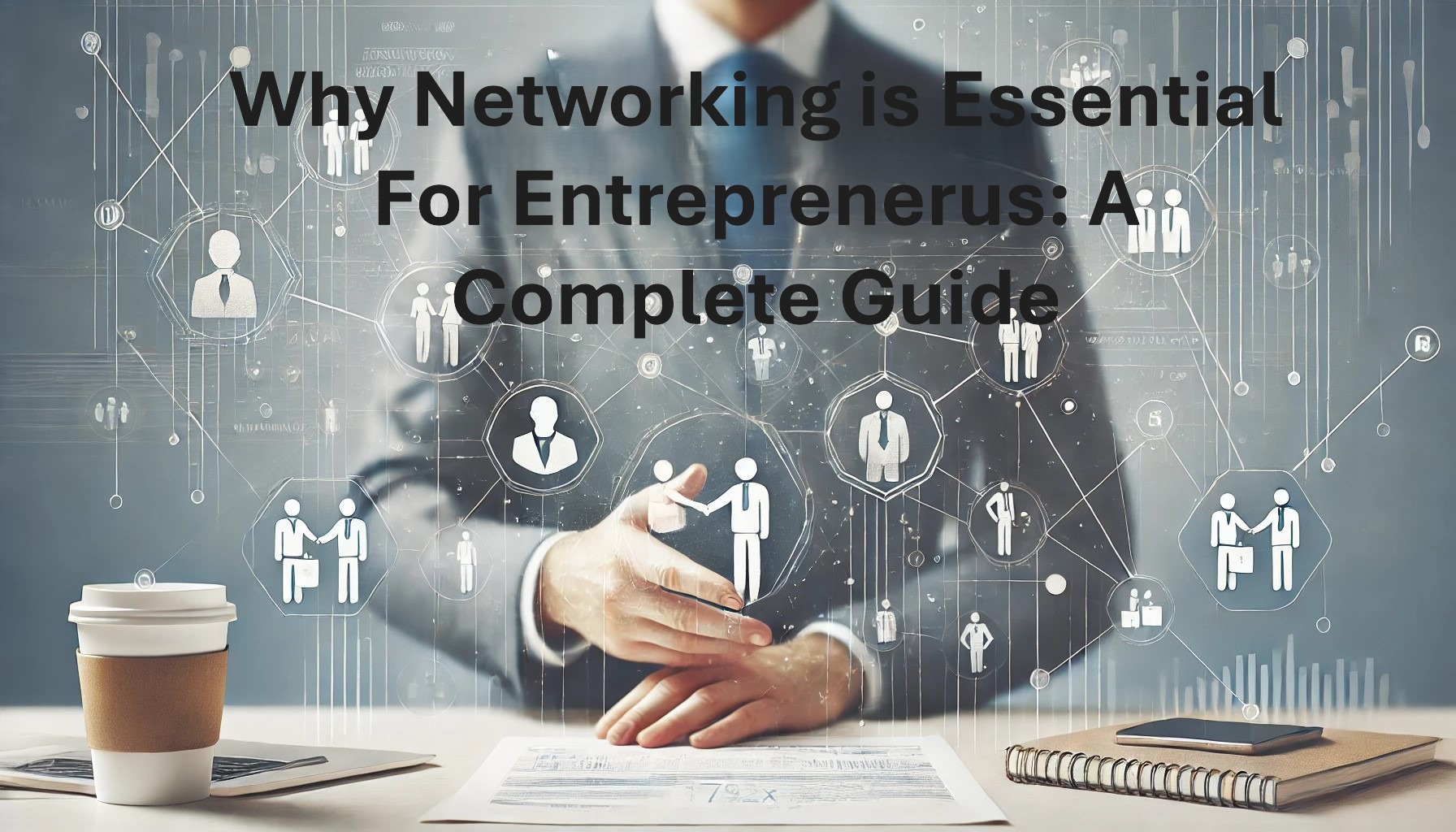Introduction: Why Networking Is Important for entrepreneurs?
The Importance of Networking for Entrepreneurs is often described as the oxygen of any new business. There is a difference between exchanging phone numbers and carrying cards, or connecting on LinkedIn; for an entrepreneur, networking is a business model that can be used to foster partnership, financing, exchange information and much more. Networking for Entrepreneurs is perhaps one of the most crucial aspects of the entrepreneurial journey, and in this article, we will look at some of the reasons why it is vital, and some tips on how to do it right.

2. Networking: What it is and how it works
In its essence, networking is the activity of building and sustaining relationships with people in a particular field of work. To the business people, networking means attending events, becoming a member of online forums or related business groups. They use it as an avenue for sharing of important information, identifying new trends in the market and getting referrals that can open up new markets for their companies.
How Networking Functions for Businesspersons
Networking is the key in entrepreneurial context and it focuses on creating beneficial relationships. Both parties are looking to benefit from the other: entrepreneurs can share their experience and give advice to others, in return, they get advice, possible partnership, etc. Word of mouth techniques such as through the use of social sites such as LinkedIn, industry conferences and community events can be used to market new products, find investors and create awareness.
3. Benefits of Networking: Expanding Your Business
4. Creating Effective Relationships for Achievement
This means that meaningful connection entails truthfulness, trustworthiness and respect for one another. The long-lasting beneficial partnerships that entrepreneurs can build, can be achieved only through real communication with other people. A lot of time and effort can be used to get to know other people and their needs, wants, and goals so that the entrepreneurs can get referrals, partnership or even mentorship.
1. Attend Regular Networking Events: In this way, entrepreneurs become recognizable and other participants trust them.
2. Engage on Social Media: Chatting with industry leaders and potential business partners on LinkedIn or via tweets can help the entrepreneurs to stay in touch in between the meetings.
3. Practice Active Listening: Listening and having a good conversation indicates that the entrepreneurs respect the opinions of other people.
5. The various forms of the entrepreneurial networking events
• Local Business Meetups: Another one is local meetups which allow entrepreneurs to find people like them in their area.
• Workshops and Seminars: On the basis of certain needs and agendas, workshops can be more effective in developing skills, as well as in attracting individuals with similar learning objectives.
• Startup Pitches and Demo Days: Such events are perfect for opportunity seekers who are in the process of searching for investors or business partners since different actors of the startup environment attend such events.
• Online Networking Groups and Webinars: As social distancing is now a norm the concept of networking through online groups is very convenient.
6. Ways to Network for Success
• Follow Up Regularly: Another component of the process is maintainance of relationships. Making a follow-up call or sending an email or message to someone one has met can be useful in some way.
7. Community development by entrepreneurs
• Engage in Group Initiatives: These include hosting meet up, workshop, or even hosting online webinars all of which assist in building the community.
• Encourage Knowledge Sharing: This is because business people who are willing to share their stories help to foster the right environment that will help people grow.
• Support Others’ Initiatives: Visiting or participating in events or providing support to other fellow business people will help in forging of bonds within the society, and at the same time get brand awareness.
• Promote Inclusivity: The successful entrepreneurial community should therefore be an open one that can accommodate people from different background and experience level.
8. Conclusion: Networking as a Key Factor in the Success of an Entrepreneur
Suggested Next Steps
If an entrepreneur is willing to take the plunge to start networking, decide on one or two events in the community or online forums to attend. Be specific about what you want to achieve through networking, be sure to contact people you meet and be yourself. Do not think of networking as a mere exercise of searching for a connection; it is a lifelong commitment to development.

FAQs
1. Why Networking Is Important for entrepreneurs?
Networking is vital for entrepreneurs because it provides access to opportunities, mentorship, and resources that are essential for business growth.
2. What are some common misconceptions about networking?
Some entrepreneurs believe networking is only about making contacts for personal gain. In reality, effective networking involves mutually beneficial relationships.
3. How can I start building a network as a new entrepreneur?
Start by attending local business events, joining online groups, and engaging with others in your industry through social media platforms.
5. How often should entrepreneurs network?
Entrepreneurs should aim to network regularly, but the frequency depends on their goals. Weekly or monthly engagement is usually effective for maintaining connections and exploring new opportunities.
6. What are the best places for entrepreneurs to network online?
LinkedIn, industry-specific forums, and online groups like those on Facebook or Meetup are excellent platforms for connecting with other professionals online.
7. Can introverts be successful at networking?
Absolutely. Introverts can focus on small, meaningful conversations rather than large gatherings. Online networking and one-on-one meetings can also be effective for introverts.
8. What’s the difference between networking and socializing?
While socializing is casual, networking is more intentional and business-focused. Networking involves building relationships that can lead to professional opportunities or support.
9. Why is following up after Networking Is Important for entrepreneurs?
Following up solidifies the connection and shows that you’re serious about building a relationship. It can open doors for collaboration or mentorship in the future. it’s an ongoing investment in growth and connection.

